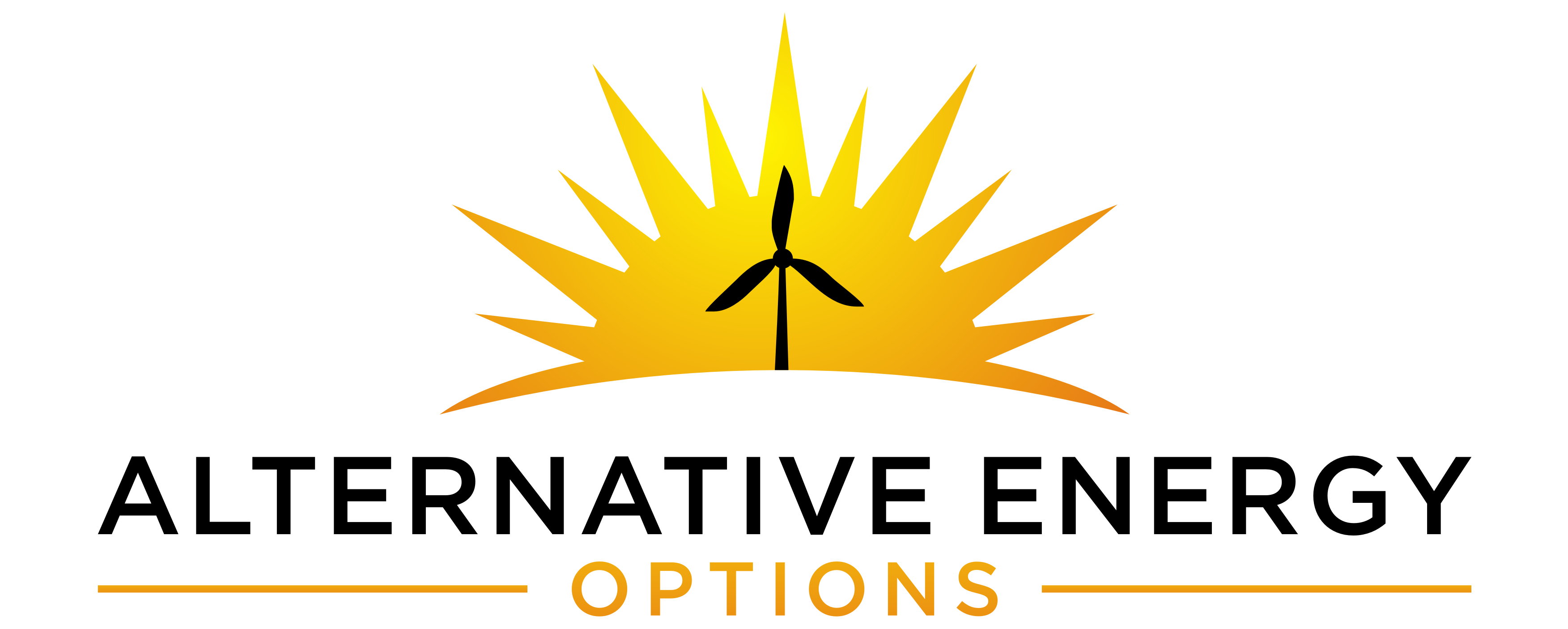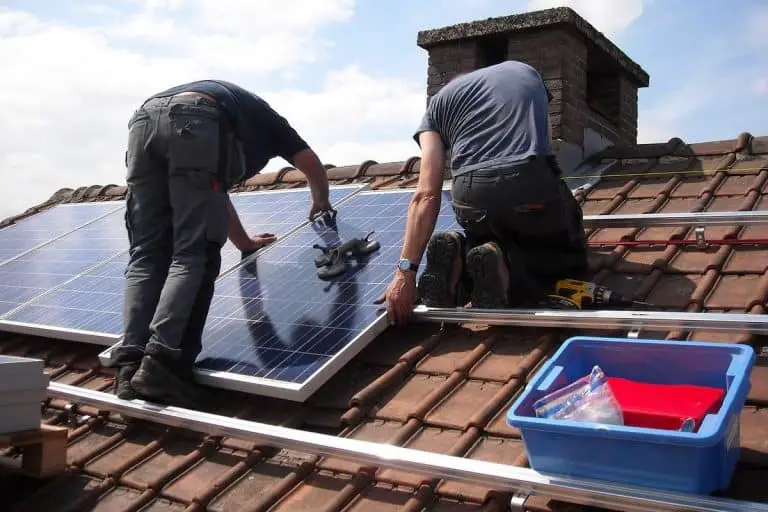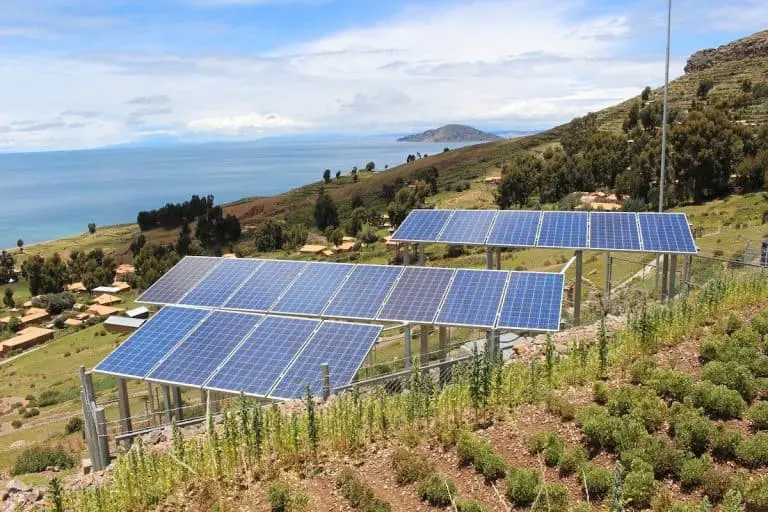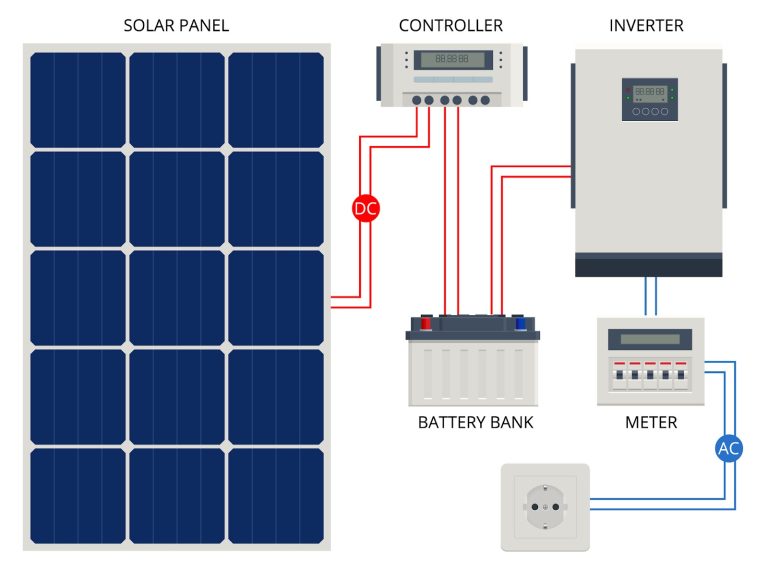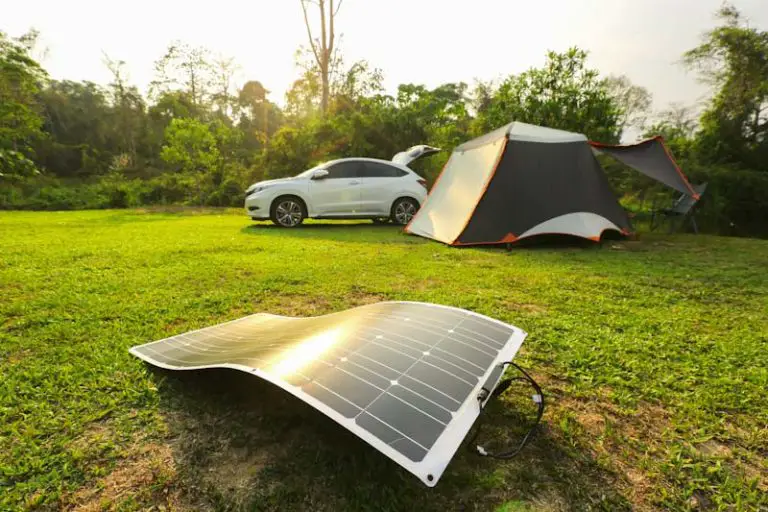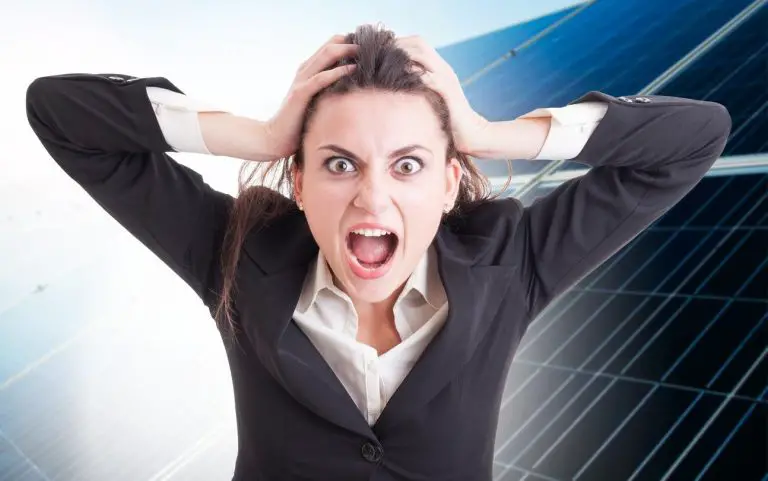What Is the Best Way to Clean Solar Panels?
Dirty solar panels are most often cleaned by the rain, as that is sufficient for washing away most of the dust and pollen that accumulates. Other debris, such as leaves and bird droppings, need a bit of scrubbing, and you can even use homemade solutions with white vinegar. It’s best to use a soft brush, squeegee, hose, and a bit of elbow grease to remove stuck-on grime and residue.
Solar panels come in many shapes and sizes. They capture the sun’s energy and convert it into electricity and thermal energy. However, electricity attracts dust and other particulate matter, which will settle on solar panels, effectively blocking the sun. To maintain your solar panels’ integrity, you need to clean them, but what is the best way to clean solar panels?
In this article, I will explore methods and materials to clean solar panels safely and what not to do so you can maximize your solar panel’s efficiency without damaging them. If you have or are considering adding solar panels to lessen your environmental footprint, continue reading.
Why Clean My Solar Panels?
Solar panels are a marvel of electrical technology, but they will attract dust and other particulate matter like any other electrical device in your home. Suppose you do not keep the panels clean. In that case, you reduce their efficiency, and they will not produce the energy needed to provide you with the energy you require.
Dust, dirt, and grime are not all the same, but one thing they do have in common is they effectively stick to glass and plastic. Cleaning and care of your solar panels will vary depending upon where you live and the climate.
No matter the material used to make them, solar panels require special care and proper maintenance for optimum performance.
Different Ways to Clean Solar Panels
The only way to keep your solar panels operating at maximum efficiency is to clean them periodically. However, solar panels are not windows, and while they need cleaning, you cannot just spray window cleaner and use paper towels. Solar panels require special care.
Your solar panels’ location is also an important consideration, especially for your safety and to prevent breaking or damage to the panels. Many things can damage your solar panels, however minutely.
When choosing your supplies, keep in mind that many detergents and powders are harsh, will scratch the surface, and possibly endanger the environment.
Soap and detergents are also prone to streaking, ultimately leaving behind a residue that will essentially have the same effect as shading on your system’s performance.
Using Soap and Water
The best and safest way to clean your solar panels is with plain water, a soft brush, cloth, sponge, and a squeegee. Sponges made for scrubbing non-stick cookware and plastic scrubbers, like those made from silicon, are safe to use and effective to clean off bird poop and stubborn grease and grime.
There are cases where stubborn grime will not seem to move off the panel’s surface with mild scrubbing and water only. In this case, using a mild biodegradable soap, such as dish soap, mixed in a bucket of warm water is a safe bet. Dish soap is non-abrasive, will rinse off thoroughly, and not leave behind a film.
Using Commercial Cleaners
I have already mentioned commercial solutions available you can use in place of dish soap. You can find these cleaners at many retailers, both brick-and-mortar and online.
Most commercial cleaners are suitable for both glass and solar panels, but it is essential to read the labels. Using a product not specifically manufactured for solar panel cleaning can damage the panel, and the manufacturer will not honor any related warranty.
Can You Use Vinegar to Clean Solar Panels?
There are times when plain water and a soft brush are not enough, but you do not want to spend money on pricy cleaners or run the risk of leaving a pesky film. One solution you have is to use white vinegar.
As seen in Solar Power World, an online trade publication, one company interviewed uses diluted vinegar and hydrogen peroxide rather than soaps or solutions. Vinegar and hydrogen peroxide are both eco-friendly choices as they are biodegradable and safe for animals.
While there are safe cleaning options available, many solutions are non-biodegradable soaps or contain chemicals. Chemicals are known to be harmful to the environment and the ecosystem.
One environmentally friendly and easy-to-make recipe for do-it-yourself glass cleaner uses ¼ cup of vinegar and ½ tsp liquid dish soap diluted in 2 cups of water. Shake or mix vigorously to combine the ingredients.
Please take note that, even though dish soap will not leave a film behind, you only need a tiny amount for it to be effective.
If you don’t happen to have any vinegar sitting around the house, or you ran out and forgot to buy it, you can use lemon juice as a substitute. Both vinegar and lemon juice are acidic, and either one will cut through the grease and grime.
Won’t the Rain Keep My Solar Panels Clean?
Most solar panels will work whether the sun is shining or hiding behind clouds. In many local climates, the rain will not keep your solar panels from generating electricity and serves as an efficient and easy way to keep your solar panels clean.
Still, rain is only partially effective at washing away dust and pollen, which are not the only particulate matter that will assail the glass of your solar panels. Birds and manmade pollution are other ways your solar panels get dirty.
Bird Droppings
Birds are a beautiful gift of nature. However, birds leave behind an unwanted gift on your car, windows, house, and, ultimately, solar panels not easily washed away by the rain. Unlike metal, the acidity of bird poop will not eat away at the glass, but the consistency will block the sunlight.
While bird droppings may seem innocuous, the more there is on the glass, and the more sunlight is blocked, there is a greater chance of damage to the solar panel. Akash Singh Chaudhary and D.K. Chaturvedi of the Dayalbagh Educational Institute of Agra, India, studied the effects of cement and bird poop on solar panels.
The study concluded that bird droppings would cause the blocked cell to heat up and form hot spots if left on the panel. This results in loss of power output and causes surface damage to the panel through burns and potential cracks.
Pollution
Pollution comes from multiple sources, including dust, mold, pollen, soil, acids, like sulfuric acid, inorganic compounds, including but not limited to ammonium sulfate and ammonium nitrate, organic chemicals, compounds containing hydrocarbon molecules, metals, and soot.
There are two categories of particulate matter: primary and secondary particles.
Primary particles are particles emitted from sources such as fires, roads left unpaved, and building sites. Secondary particles are formed during a chemical reaction in the atmosphere and involve chemicals like sulfur dioxides and nitrogen oxides from cars, power plants, and other industries.
Although the air around you looks clean, looks are deceiving. It does not need to be hazy or smoky out to leave a lovely layer of sun-blocking particles on your solar panels.
The particle pollution in urban areas near a busy road, an active construction site, airport, or an industrial park, is high. However, just because you don’t live in a city does not mean your solar panels are out of the particulate woods.
Smoke-filled air from fires, wood stoves, fireplaces, near the ocean, near to or on a farm, or where it is humid will be high in particulate matter. These particulates affect your solar panels’ performance just as much as if you lived in an urban area.
How Should I Clean My Solar Panels?
Before you grab your pail of water and scrub brush, stop and read what the manufacturer of your solar panels recommends. Most manufacturers provide a booklet on care, and, if you’ve lost yours, you should be able to find it online.
If you’re unable to locate the manufacturer’s instructions, below are a few basic tips to follow when you are ready to tackle this worthwhile but, potentially, dangerous and challenging endeavor.
Potential Challenges
Most individual homes, many businesses, and even Recreational Vehicles have solar panels mounted on the roof. Roofing shingles are very slippery when they get wet, and the leaves from any surrounding trees simply add to the equation. Once you begin to slip or slide, you most likely will not be able to stop yourself.
If you reach out to use a panel to keep from falling off the roof, you will damage the panel. Even if you do not use the panels as anchors when falling, there is a natural tendency to lean forward. If your balance is compromised, you might fall on the panel itself. In your effort to reach that tiny spot at the top, you might inadvertently step on a panel.
As mentioned above, even something as small as a scratch will damage and lower your system’s efficiency. Suppose you fall onto or step on the panel, cracking it, or loosen it by grabbing it. These are all what-ifs but possible scenarios that will end up costing you your health and money.
There are some systems where the panels are on the ground and very easy to get to. However, these systems tend to tilt, making spots challenging to reach, and you may already have guessed that leaning on the panels will damage them.
No worries because there are various products available on the market that will make your cleaning job easier and while going easy on your panels.
How Can I Safely Reach the Panels?
First and foremost, you do not want to lean, climb on, or step on your panels because, again, you will cause irreparable damage and face possible harm to yourself or others.
In this scenario, you will need a telescoping handle upon which you can attach your soft brush or sponge. If you don’t happen to have a telescoping handle, soft brush, or a nice soft sponge lying around the house, kits are available for sale.
If you purchase a kit, finding one to fit your specific needs and budget will not be difficult. There are kits with a couple of tools and those with everything from soup to nuts, minus the cleaning solution.
Suppose you have never cleaned solar panels before. Purchasing a kit will eliminate the guesswork. After all, you don’t want to be caught on the roof, wishing you had bought a squeegee.
Once you have assembled your cleaning kit, put on your rubber gloves — it’s always a good idea to protect your hands — and head outside.
The Cleaning Do’s and Don’ts
One of the very first things you must consider when cleaning your solar panels is safety. It bears repeating to never climb onto a wet roof or one filled with slippery leaves. The last thing you want is to take a trip to the hospital when you could be having fun cleaning.
Once you have determined the roof is safe to climb about on, and you are comfortable doing so, you will need to shut off your solar system. Always follow your installer’s or manufacturer’s directions so as not to harm your system.
Never clean your panels when they are boiling. You risk cracking or shattering them as soon as the cold water touches the hot surface. Once they reach 140–150°F, it is best to wait. The optimal time to clean is on a cloudy day or early morning before the panels have time to heat up.
Always inspect your panels for cracks or exposed wires prior to beginning, as you risk having soapy water seep into the panel.
Once all the above precautions have been performed, take your soft brush and gently brush off any loose dust, pollen, dirt, or debris. Choose an attachment for your hose that creates just enough pressure to loosen and wash what you could not brush off. The right amount of pressure may let you skip the brush and solution step.
However, suppose you own a pressure washer. You may think it’s a great idea to use; after all, a pressure washer has more pressure per square inch than your average garden hose, saving you time, but do not do it — a pressure washer will damage your panels. A garden hose with a suitable nozzle is all you need.
Almost as tempting as a power washer is using a heavy-duty scouring pad to get that stubborn stain off the glass, but don’t give in to the temptation. You never want to scrub that bird poop off with a scratchy scouring pad, wire cleaner, or metal scraper because you’ll scratch the surface and damage the panel.
How Often Should I Clean My Solar Panels?
According to solaralliance.org contributor Laura Day, you should clean your panels at least once or twice a year. However, you may live where there is a lot of particulate matter, such as the southwestern United States or near a farm or highway. In that case, you should rinse your panels every few days or weeks.
If you choose to clean your panels once a year, the best time to do so is in the Spring to wash away debris and dirt left by leaves and snow. Of course, the best indication of dirty solar panels is your power level. A decrease in efficiency most likely points to dirty panels.
What? A Self-Cleaning Solar Panel?
You read correctly, Seamus Curran, an associate professor of physics at the University of Houston and director of the Institute for NanoEnergy, developed a self-cleaning nano hydrophobic material to coat solar panels.
A hydrophobic coating forms a layer or barrier and repels water. The difference between a regular hydrophobic and nano hydrophobic coating lies in thickness. Hydrophobic coatings have the potential to block light; however, the nano hydrophobic coating is so thin it will not scatter light and will not affect the performance of the panel.
Researchers at the Department of Energy’s Oak Ridge National Laboratory have found inspiration from nature since the lotus leaf naturally repels water, and a moth’s eyes are anti-reflective. These observations led to the development of nano hydrophobic and superhydrophobic coatings.
Much of the research is for large solar panel farms, especially those located in desert areas. However, the technology exists on a smaller scale. I found quite a few on Amazon for glass, but I could not find any recommended for solar panels. Read labels and check with the manufacturer before using any type of coating on your panels.
Final Thoughts
Solar panels require special care and attention. Keeping them free of debris and particulate matter will increase the panels’ efficiency and longevity, and using products made specifically for solar panels increases the probability your panels will not suffer scratches.
Safety is a huge concern, especially if your panels are located on your roof. The chances of injury to yourself and damage to your panels are not small. Remember, a roof is a slippery place when wet, and leaves only make it worse. As long as you take precautions and keep safety first and foremost, you should be able to clean your panels in a relatively short time.
